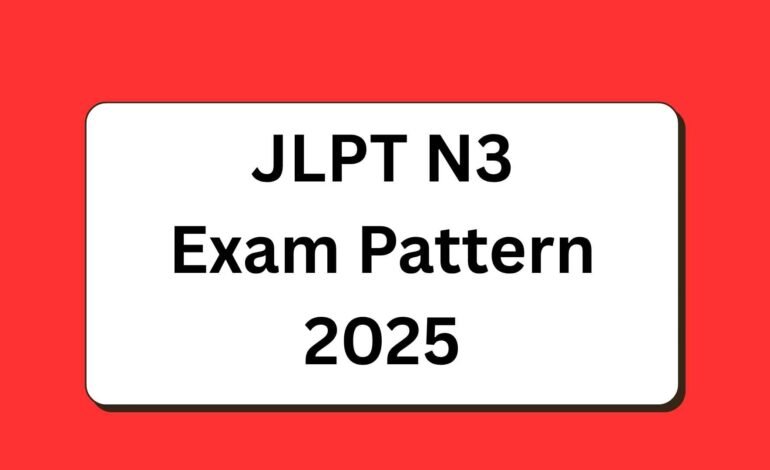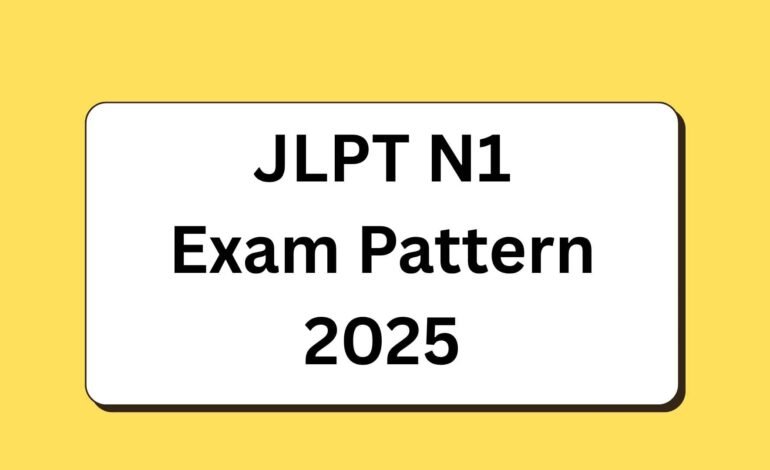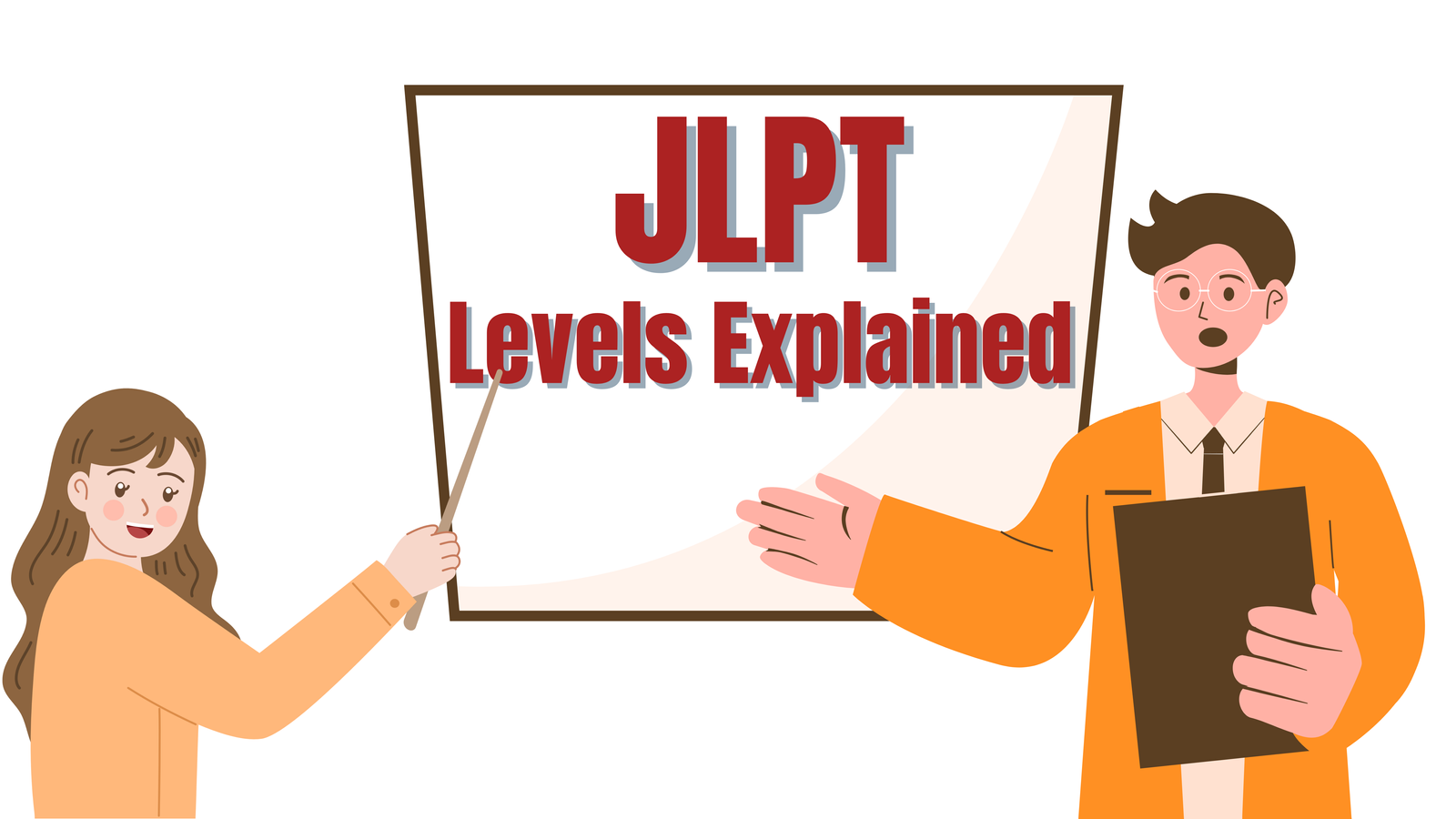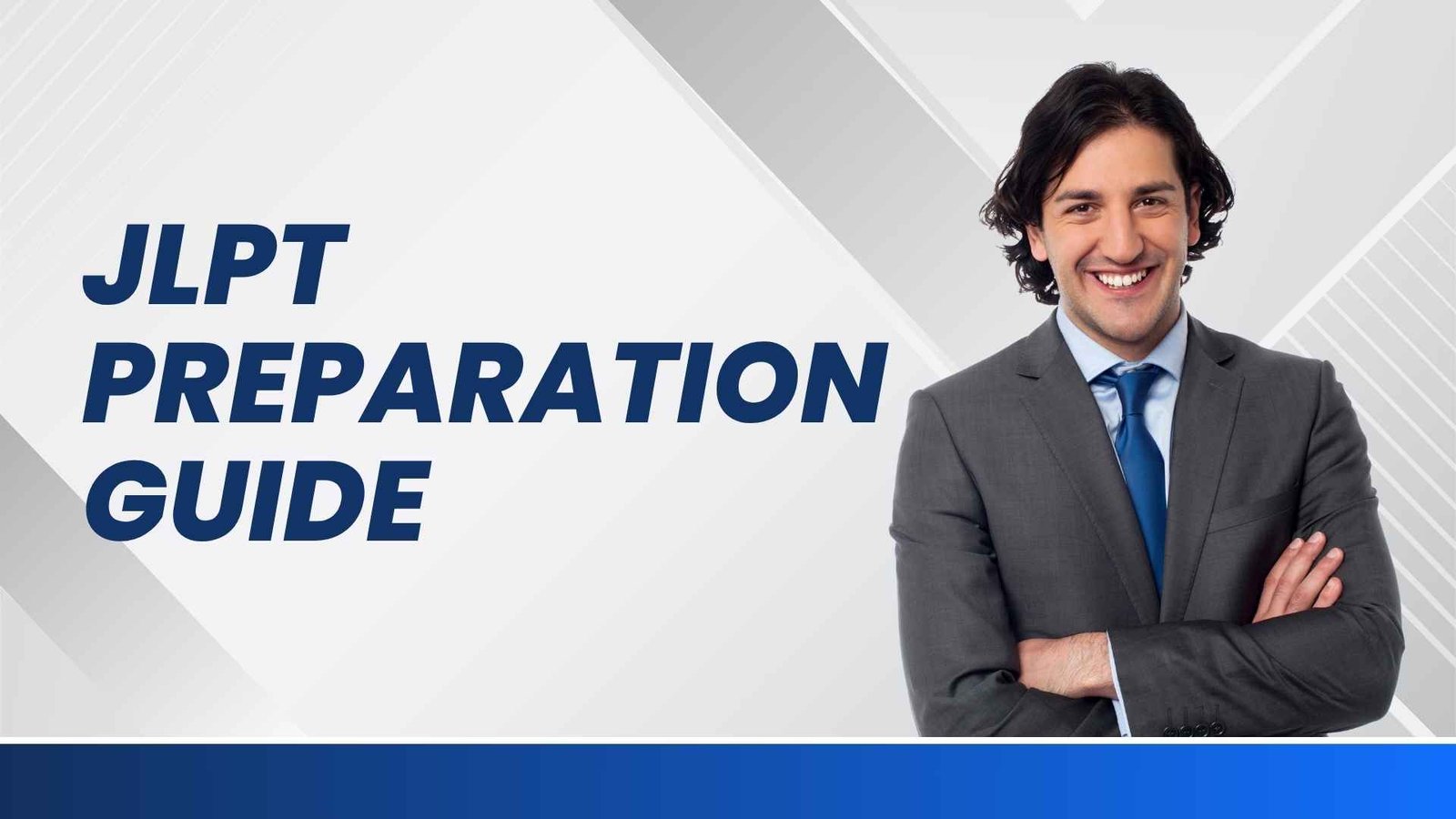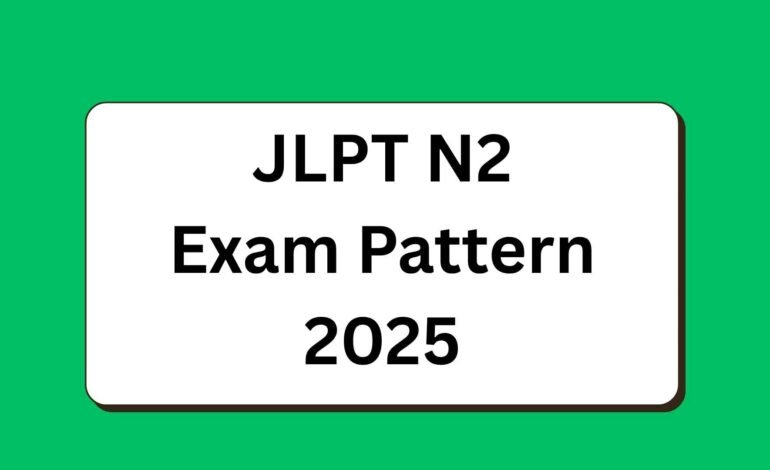
JLPT N2 Exam Pattern 2025 – Comprehensive Guide
The Japanese Language Proficiency Test (JLPT) N2 is a significant milestone for Japanese language learners, signifying the ability to understand Japanese used in everyday situations and in a variety of circumstances to a certain degree. For those in India and around the world aiming for this intermediate-advanced level in 2025, a clear understanding of the exam pattern is crucial for effective preparation.
This comprehensive guide will break down the structure of the JLPT N2 exam, detail its sections, syllabus, scoring, and provide essential tips to help you achieve success. Official Website.
What Does JLPT N2 Assess?
The JLPT N2 is designed to evaluate your command of more complex Japanese in both written and spoken contexts. It assesses your ability to:
- Comprehend clearly written and spoken Japanese used in various everyday situations, including news articles, magazines, and various forms of media.
- Understand a wider range of vocabulary and more complex grammatical structures.
- Engage in natural and advanced conversations and comprehend spoken Japanese at nearly natural speed.
JLPT N2 Exam Structure: Overview
Unlike N5 and N4, the JLPT N2, along with N1 and N3, has three distinct scoring sections, though they are administered in two separate test parts. All questions are multiple-choice, with no speaking or writing components.
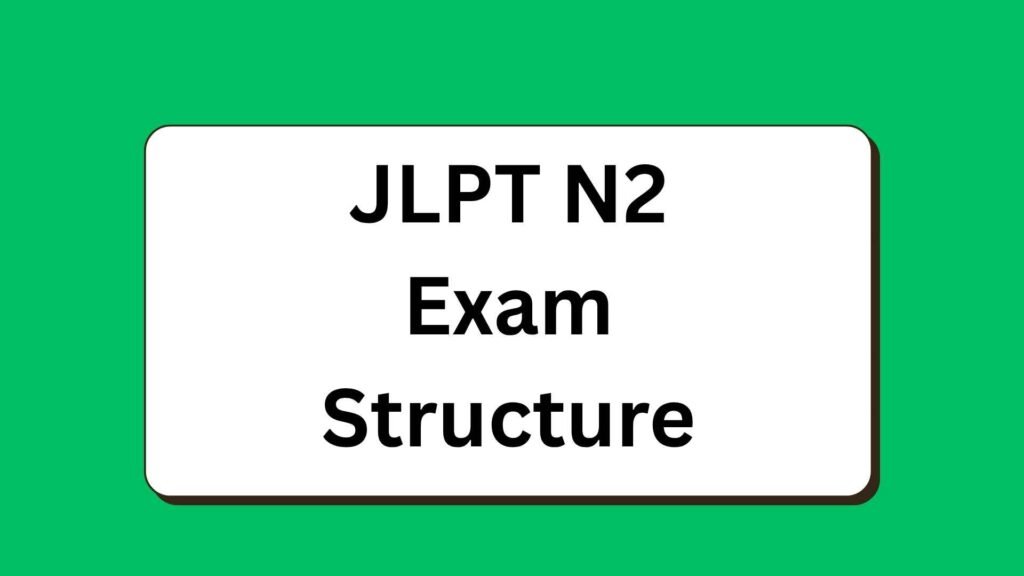
Here’s a general breakdown:
- Total Questions: Approximately 115 questions.
- Total Duration: 155 minutes.
Sections Breakdown & Time Allotment:
The N2 exam is divided into two main parts:
- Language Knowledge (Vocabulary/Grammar) & Reading: This combined section tests your knowledge of vocabulary, Kanji, grammar, and reading comprehension.
- Time Allotment: 105 minutes
- Scoring Weight: 120 points (60 for Language Knowledge, 60 for Reading)
- Listening Comprehension: This section assesses your ability to understand spoken Japanese.
- Time Allotment: 50 minutes
- Scoring Weight: 60 points
Detailed Breakdown of Each Section
1. Language Knowledge (Vocabulary)
This section evaluates your ability to recognize and understand a broad range of vocabulary used in various contexts.
- Expected Knowledge: Approximately 6,000 vocabulary words. This includes abstract nouns, idiomatic expressions, compound words, and terms used in business or academic settings.
- Kanji: Knowledge of about 1,000 commonly used Kanji characters is required, including those found in public signs, job-related materials, and printed media.
- Question Types:
- Identifying the correct reading of a Kanji.
- Choosing the correct Kanji for a given reading.
- Selecting the appropriate word based on context in a sentence.
- Understanding the meaning of a word in a specific sentence.
2. Language Knowledge (Grammar)
This section tests your understanding and application of complex N2-level grammar structures.
- Expected Knowledge: Focuses on nuanced expressions, formal sentence patterns, logical structuring, conjunctions, particles, and honorifics.
- Question Types:
- Sentence Completion: Choosing the correct grammar particle, verb conjugation, or phrase to complete a sentence.
- Sentence Reordering: Arranging jumbled parts of a sentence into a grammatically correct and meaningful order.
- Text Grammar: Understanding the overall flow and coherence of a short passage by selecting appropriate connecting words or phrases.
3. Reading Comprehension
This section assesses your ability to read and understand authentic Japanese materials.
- Expected Knowledge: Comprehending articles, essays, advertisements, instruction manuals, and general news reports. The content can cover a range of topics, including social issues, science, and culture.
- Text Types: Passages will vary in length, including short texts (e.g., notices, emails), medium-length texts (e.g., advertisements, blog excerpts), and longer passages (e.g., newspaper editorials, short essays).
- Question Types:
- Identifying the main idea of a passage.
- Extracting specific information.
- Understanding the author’s intention or implied meaning.
- Summarizing key points.
4. Listening Comprehension
This section evaluates your ability to understand spoken Japanese at a near-natural speed in various situations.
- Expected Knowledge: Comprehending coherent conversations, news reports, announcements, and short talks in both formal and informal contexts.
- Content: Expect dialogues between multiple speakers, often about daily life, societal issues, or workplace scenarios. The test includes complex sentence structures and vocabulary used in both formal and informal settings.
- Question Types:
- Task-based Comprehension: Listening to a situation and choosing the best action to take.
- Point-based Comprehension: Answering questions about specific details from a conversation or monologue.
- Gist Comprehension: Understanding the main idea of a longer dialogue or narrative.
- Verbal Expressions: Identifying the speaker’s intention or emotion based on their tone and wording.
JLPT N2 Scoring Criteria 2025
The JLPT N2 is scored out of 180 points. To pass, you must meet two requirements:
- Overall Pass Mark: Achieve a total score of at least 90 points out of 180.
- Sectional Pass Marks: Score at least 19 points in each of the three scoring sections:
- Language Knowledge (Vocabulary/Grammar)
- Reading
- Listening
This dual requirement ensures a balanced proficiency across all areas of the test. Even if your total score is above 90, failing to meet the minimum sectional score in any one area will result in an overall failure.
JLPT N2 Exam Dates 2025 in India
The JLPT is generally held twice a year, in July and December, across various cities in India (e.g., New Delhi, Mumbai, Chennai, Bengaluru, Kolkata, Pune, Santiniketan, Karur).
- First Session (July): Expected date is Sunday, July 6, 2025.
- Registration period is typically late March to mid-April 2025.
- N1 and N2 are usually held in the morning session.
- Second Session (December): Expected date is Sunday, December 7, 2025.
- Registration period is typically late August to mid-September 2025.
Always confirm exact dates, registration periods, and locations with the official JLPT India website (e.g., MOSAI for New Delhi, ABK-AOTS DOSOKAI for Chennai, BNK for Bengaluru, JALTAP for Pune, etc.) or your local test center announcements, as these can vary slightly. Early registration is highly recommended due to limited seat availability.
Strategies for JLPT N2 Success
Passing the JLPT N2 requires dedicated and strategic preparation. Here are key tips:
- Master N2 Vocabulary and Kanji: This is foundational. Aim to learn around 6,000 vocabulary words and 1,000 Kanji. Use flashcards (Anki, Quizlet), vocabulary apps, and integrate new words into your daily practice. Pay close attention to context and nuance.
- Deep Dive into N2 Grammar: Go beyond memorizing grammar points. Understand their subtle differences, usage in various situations (formal vs. informal, polite vs. casual), and how they connect sentences and ideas. Practice extensively with fill-in-the-blank and sentence reordering exercises.
- Extensive Reading Practice: Read as much as you can. Engage with authentic Japanese materials like news articles (e.g., NHK News Web Easy, then regular news), short essays, blog posts, and even simple novels or short stories. Focus on improving your reading speed and comprehension of longer, more complex texts. Practice scanning for keywords and main ideas.
- Immerse in Listening: Listening skills are critical for N2. Listen to Japanese podcasts, news broadcasts, dramas, and anime. Start with materials with Japanese subtitles, then gradually challenge yourself without them. Practice active listening – trying to understand the overall gist, specific details, and the speaker’s intent.
- Take Regular Mock Tests: This is perhaps the most crucial strategy. Taking full-length practice tests under timed conditions will:
- Familiarize you with the exam format and question types.
- Help you manage your time effectively during the actual exam.
- Identify your strong and weak areas, allowing you to focus your study.
- Build stamina for the long test duration.
- Create a Structured Study Plan: A consistent study schedule is vital. Allocate dedicated time daily or weekly for each section – vocabulary, Kanji, grammar, reading, and listening. Many resources provide sample study schedules (e.g., 6-month plans).
- Utilize Quality Study Materials: Invest in reputable JLPT N2 textbooks (e.g., Shin Kanzen Master series, Try! N2, Sou Matome series), online resources, and practice workbooks.
Need Personalized Guidance for Your JLPT N2 Preparation?
The JLPT N2 demands a solid understanding of intermediate-advanced Japanese. If you’re feeling overwhelmed or need structured guidance, personalized support can make a significant difference.
Whether you’re looking for tailored study plans, in-depth explanations of complex grammar, or strategies to enhance your reading and listening comprehension, expert instructors can help you prepare effectively for the N2 exam.
Don’t hesitate to take the next step in your Japanese learning journey! Contact us for personalized advice or to join focused study sessions. Click Here.
Call us now at +91 8700956038 and take the first step towards mastering the JLPT N2!

